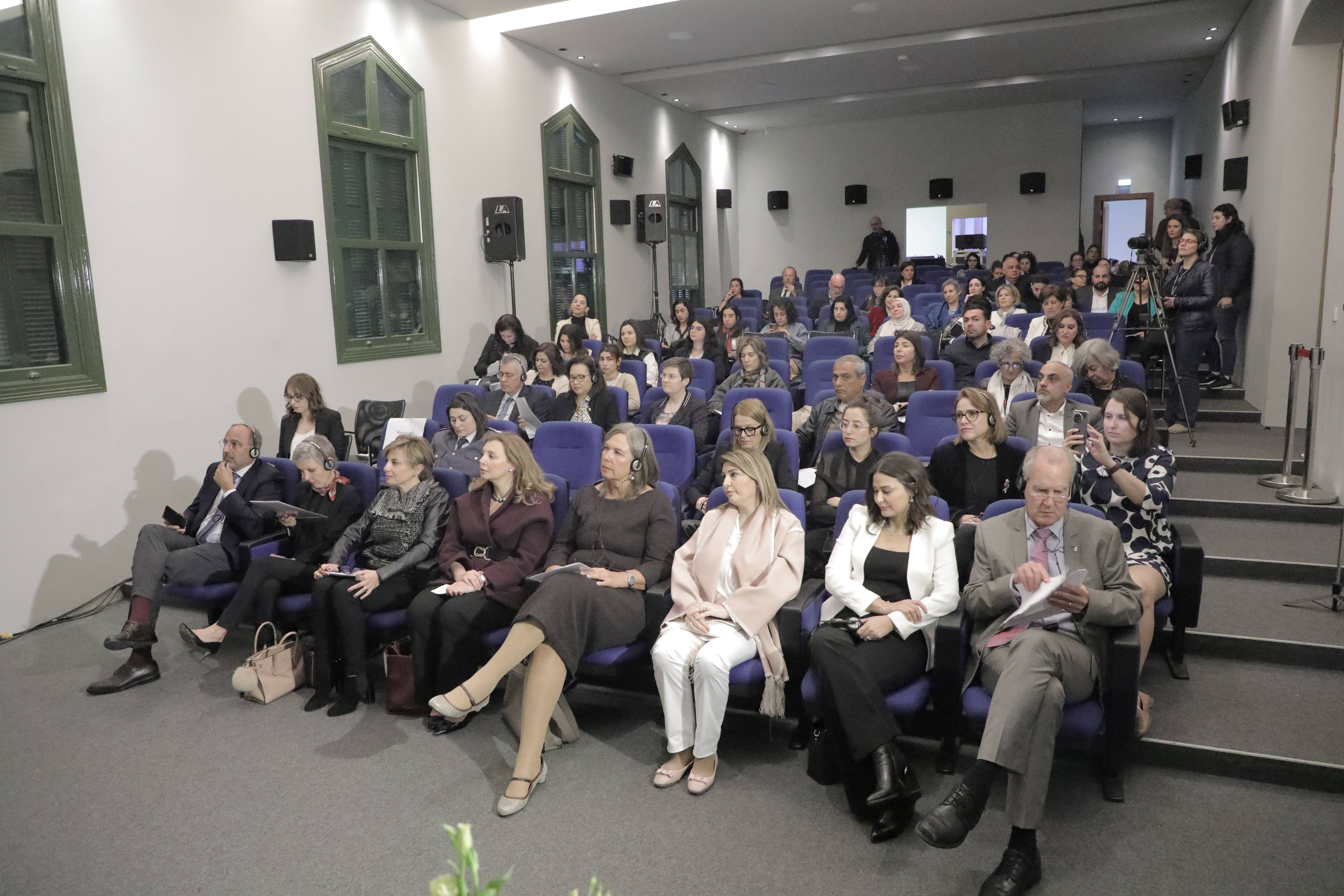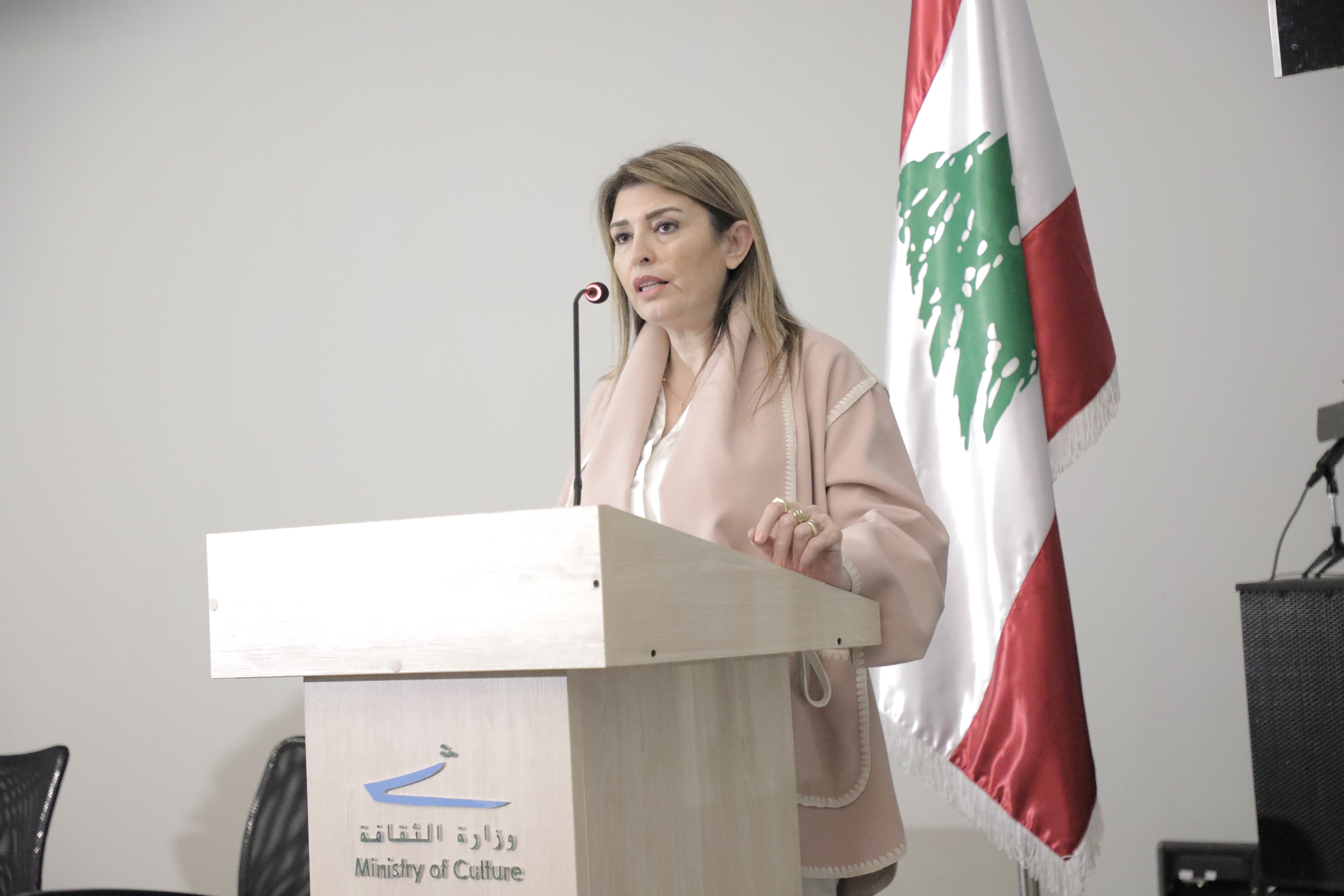International Women’s Day 2024: Lebanese women blaze trails in peacebuilding and relief work
Date:
Beirut, 5 March 2024 – Amidst multiple crisis and conflict, Lebanese women’s continued efforts in building peace and advancing justice are ever more crucial. Lebanese women continue to mobilize for peace, mediate and resolve conflicts, stand up for human rights and the dignity of vulnerable groups and provide humanitarian relief.
To mark International Women’s Day 2024, UN Women and the embassies of Finland, Norway and Switzerland in Lebanon, joined forces to showcase the pioneering roles of women fostering peace and security across Lebanon and to discuss the relevance, challenges and progress in implementing the Women, Peace and Security Agenda in Lebanon, in particular amid ongoing crises and conflict. The event also sheds light on the situation of women in the South of Lebanon, their needs, and their roles in the humanitarian relief response.
In her opening remarks, UN Women Representative in Lebanon Gielan Elmessiri said "In Lebanon, women peacebuilders continue to mobilize constituencies for peace, mediate and resolve conflicts, successfully stand up for the human rights and dignity of vulnerable groups and provide humanitarian relief".
The Ambassador of Switzerland, Dr. Marion Weichelt praised how “Lebanese women stand up for solidarity, claim the universality of rights and peace, and advocate for the principles that are the foundation of the UN-Charter, but that are currently threatened as never before”.
The event at the National Library was attended by a diverse audience of 100 people, including women activists and peacebuilders, civil society actors, State officials, diplomats and UN representatives.

The first panel drew attention to women’s pivotal roles in conflict prevention and peacebuilding and acknowledged successful women-led reconciliation and mediation actions, as well as actions to influence national policymaking to strengthen and solidify peace. Sally Hareb, a peacebuilder from Akkar Governorate, said “At the beginning of our work with the women’s groups in Akkar, we discovered that the women were only seen as victims, but with time women began to discover that they were not only victims, they were also involved in other roles as first responders and peacemakers”.
Nayla Hamade, Co-founder and board member of the Lebanon Association for History and member of Women Peacebuilding Network in Lebanon said, “We seek at the Lebanese Association for History to design a history curriculum oriented towards the future, that would be an incubator of different narratives, and to correct the flagrant and well-documented exclusion of women and their role in history, and in designing the curriculum”.

The second panel – which included key remarks by interim Governor of Nabatieh, H.E. Ms. Hwaida Turk, called for accelerated and intensified efforts to address women’s humanitarian needs in the South of Lebanon, and to engage women as agents of change in relief and recovery actions and emphasized the importance of women’s economic empowerment.
----------------------------------------------------------------------------------------------------------------------------------------
International Women’s Day is celebrated on 8 March of every year in many countries around the world as a day to recognize women for their achievements.
In 2000, the United Nations Security Council adopted resolution 1325 based on the recognition that peace and security are not achievable without the active and meaningful participation of women. Despite the passage of nine subsequent Security Council resolutions and advances related to policy and practice, all of which together comprise the women, peace, and security (WPS) agenda, too few women are represented in peace and security decision making across the globe.
Lebanon adopted its first National Action Plan (NAP) on United Nations Security Council resolution 1325 on Women, Peace and Security in 2019 (for the period 2019–2023), which focused on increasing women’s participation in decision-making in all sectors. The plan promotes the protection of women from violence during conflict and their participation in relief and recovery efforts. Lebanon is currently developing a second NAP, drawing on the experiences and lessons learned from the implementation of the first NAP.
____________________________
Media Contacts:
Roula Rached, Communications and Advocacy Specialist, UN Women, phone number: + 961 70351088